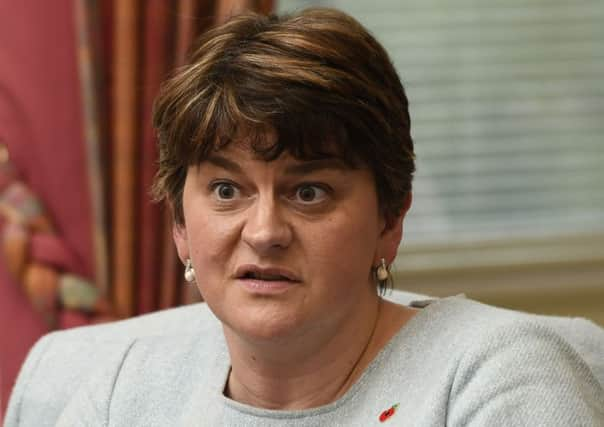RHI scandal: After internal dispute, DUP close ranks around Arlene Foster


On the day that former DUP MLA David McIlveen delivered a series of brutal criticisms of Mrs Foster’s handling of the RHI scandal, no elected DUP representative came out to support his stance.
Significantly, some of those associated with the Paisleyite wing of the DUP were forthright in their support for Mrs Foster.
Advertisement
Hide AdAdvertisement
Hide AdLagan Valley MLA Edwin Poots robustly defended his leader’s position over the course of an hour on BBC Radio Ulster’s Talkback programme.
And last night Baroness Paisley, the widow of DUP founder the late Ian Paisley, declined to comment in detail on the situation but told the News Letter that “everyone needs to calm themselves”.
The DUP vice president said that there was a need to “get to the bottom of it and sort it out”, adding: “It shouldn’t be insoluble”.
Veteran DUP MP Sammy Wilson - a potential candidate for the leadership if Mrs Foster was to be forced out - also spoke unequivocally in support of the First Minister’s position.
Advertisement
Hide AdAdvertisement
Hide AdThe East Antrim MP accused Mr McIlveen of “going along with the mob”. Mr Wilson said that Mrs Foster enjoyed his “full confidence” and he felt she has handled the situation “magnificently”.
Meanwhile, Sinn Fein last night dismissed a DUP proposal which Mrs Foster has said would eradicate future losses from the RHI scheme.
After a meeting between DUP Economy Minister Simon Hamilton and Sinn Fein Finance Minister Máirtín Ó Muilleoir, the latter pronounced the DUP plan a “sticking plaster” and said there was “no long-term plan to tackle the RHI debacle and its potential loss of hundreds of millions of pounds to the public purse”.